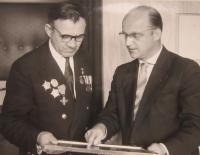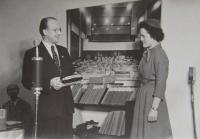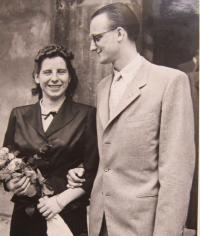Above all we had to calm the people down in order to prevent bloodshed

Download image
Luboš Holoubek was born February 24, 1928 in Jičín. From 1948 he worked as a reporter for the Czechoslovak Radio - at first in Prague, then in Jihlava, and subsequently in Žďár nad Sázavou. Together with his wife Irena they were broadcasting from there even in August 1968 when Czechoslovakia became invaded by the armies of five Warsaw Pact countries. For ten days and nights they were keeping the public informed, sending messages to the invaders and urging the people to stay calm. Their radio station eventually became one of the last ones in the entire country to keep reporting. Both Luboš and his wife were then immediately fired for this activity. Luboš Holoubek then changed jobs several times, and he eventually retired earlier due to an eye problem. He used his experience as a radio reporter for recording the life stories of Catholic nuns and other representatives of the Church. During the 1970s and 1980s he recorded tens of interviews with them and he also supported the Church by his other activities. He and his wife now live in Žďár nad Sázavou.












